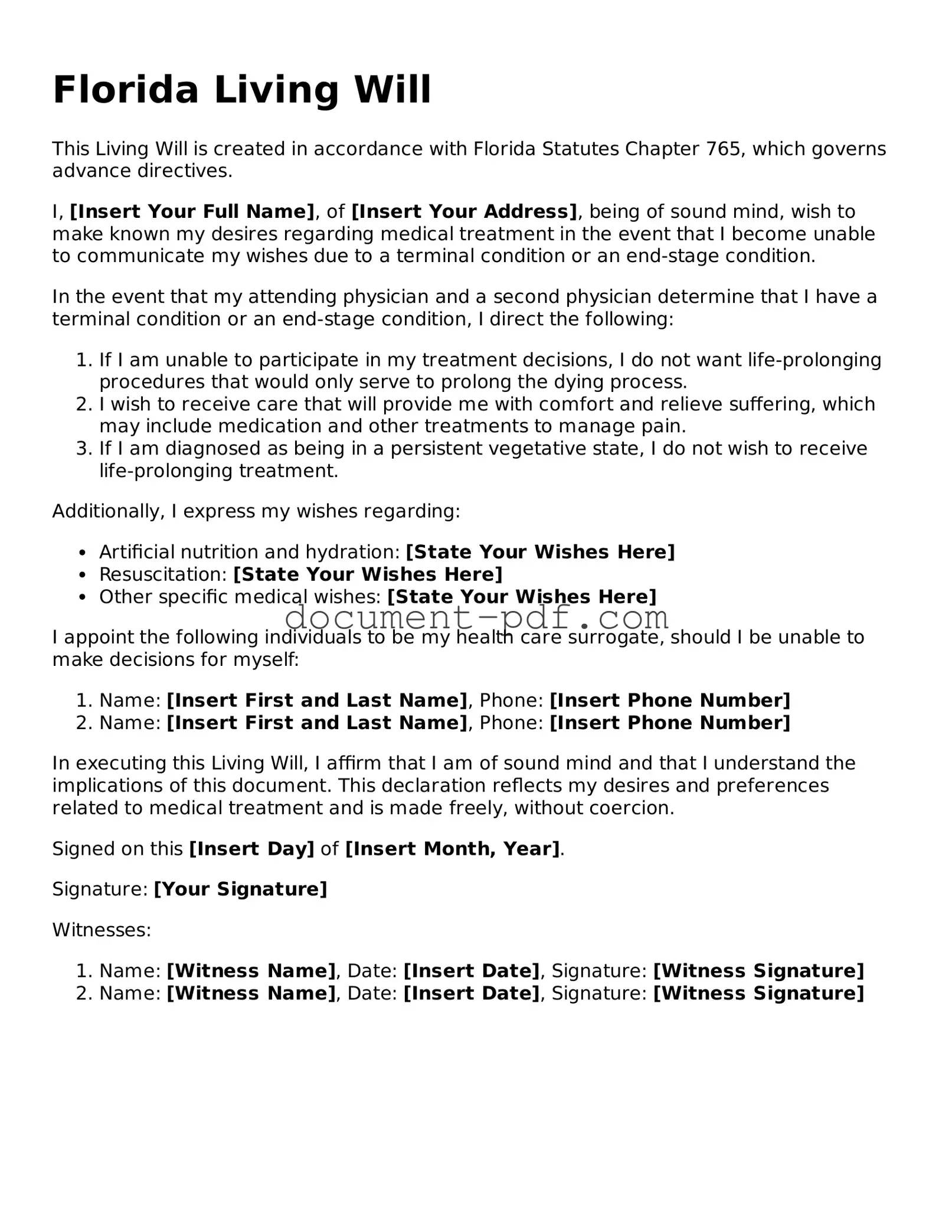Attorney-Verified Florida Living Will Template
A Florida Living Will is a legal document that outlines an individual's preferences regarding medical treatment in the event they become unable to communicate their wishes. This form serves as a vital tool for ensuring that your healthcare decisions are respected, providing clarity to family members and healthcare providers alike. To take control of your healthcare decisions, consider filling out the form by clicking the button below.
Access Living Will Editor Here

Attorney-Verified Florida Living Will Template
Access Living Will Editor Here
Finish the form without slowing down
Edit your Living Will online and download the finished file.
Access Living Will Editor Here
or
Click for PDF Form
